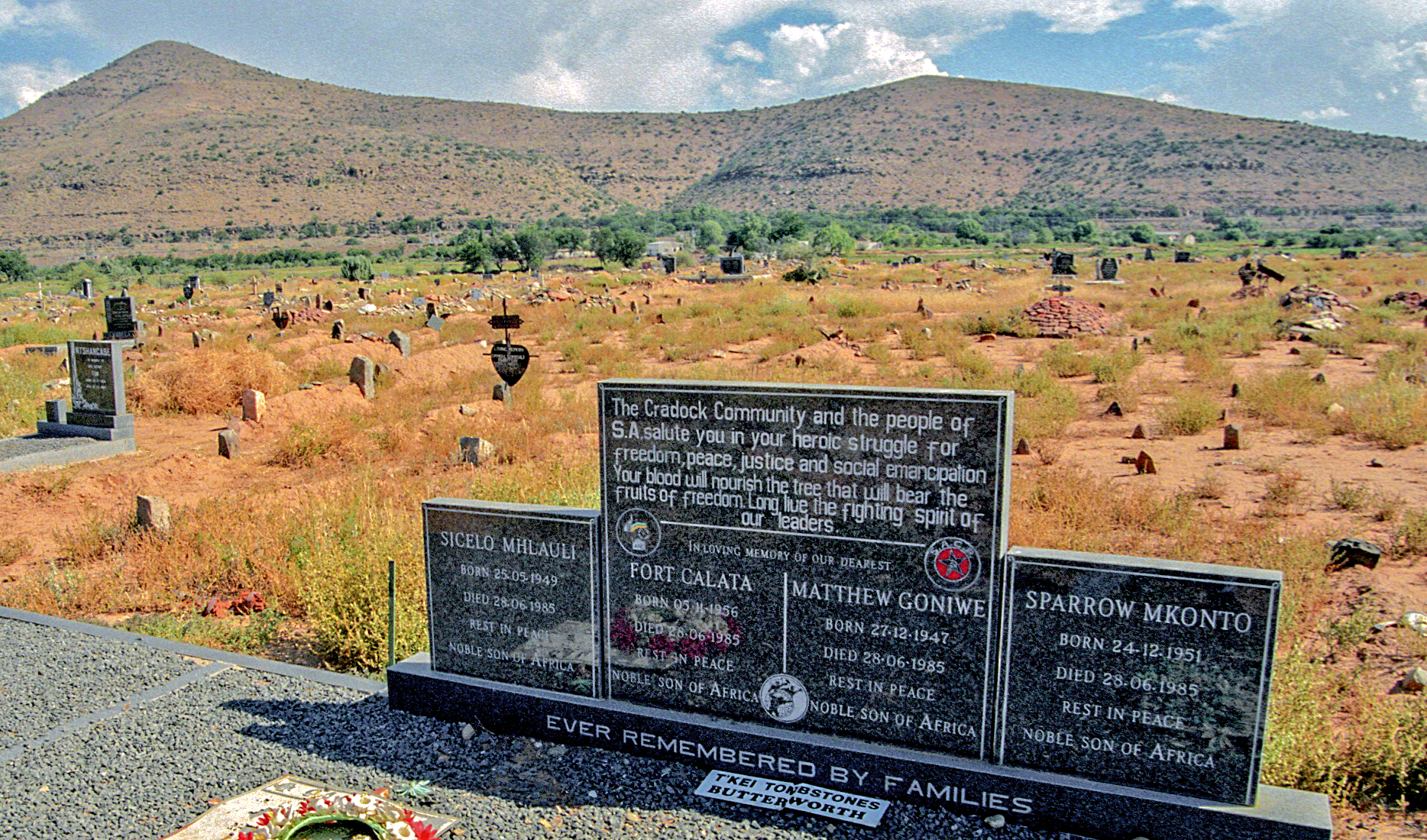They might have held high ranks in South Africa’s apartheid-era police and military, but the three elderly men called to testify this week at the third inquest into the deaths of the Cradock Four are now little more than relics from a dark time in our country’s history.
On Thursday, former South African Defence Force Lieutenant General Christoffel “Joffel” van der Westhuizen (83) spent the entire day in the virtual stand. On Wednesday, he was preceded by Major General Gerrit Erasmus (89) and Major General Izak “Krappies’ Engelbrecht (85), both former police members.
They were labelled persons of interest for their direct or indirect roles in the deaths of the Cradock Four — Fort Calata, Sicelo Mhlauli, Sparrow Mkonto and Matthew Goniwe.
All three vehemently denied their involvement and said the testimony of other key figures in the murders was incorrect or blatant lies.
The Cradock Four were murdered on 27 June 1985 when they were returning to Cradock from Gqeberha (then known as Port Elizabeth). They were arrested at a roadblock manned by members of the Security Branch, assaulted and killed.
/file/dailymaverick/wp-content/uploads/2025/06/DSC_2550-copy.jpg)
Read more: Ex-spy Craig Williamson denies ordering Security Branch hit on Cradock Four activist
At the previous inquest, in 1993, Judge Neville Zietsman found that Van der Westhuizen was directly implicated in the murders as he had sent the signal that set in motion the plan to “permanently remove from society” the four activists.
Testifying via a live video feed on Thursday, Van der Westhuizen said that while he abided by Zietsman’s findings, he still emphatically denied having any involvement in the murders.
He told the court that he only knew Goniwe as an activist involved in a school boycott, and never considered him a terrorist or a threat to national security.
Van der Westhuizen told the court that in 1985 he received a phone call from a Security Branch officer, Nicolaas van Rensburg, asking him for input on the “education situation” in the Eastern Cape.
He consulted Lourens du Plessis, another member of the Security Branch, as he had more in-depth knowledge of the key anti-apartheid activists in Cradock.
Van der Westhuizen said he simply supplied Goniwe’s name and left Du Plessis to compile the rest of the signal. He claims to have had no knowledge of the other names Du Plessis added to the signal, or that it implied that the men had to be killed.
He was under cross-examination by advocate Howard Varney, representing the families of the Cradock Four, when Judge Nomathamsanqa Beshe postponed the matter until Friday.
Hearing difficulties
On Wednesday, court proceedings were marred by repetitive cross-examination as Erasmus and Engelbrecht struggled to recall events from the 1980s, or had difficulty hearing the questions put to them by the attorneys of the various parties.
Erasmus, the former commander of the Port Elizabeth branch of the police’s Security Branch, was implicated in the murders by Lieutenant Jaap van Jaarsveld, widely considered to be one of the masterminds behind the plot to kill the Cradock Four.
However, Erasmus claimed Van Jaarsveld was mistaken as the two of them never worked together. Erasmus said he had been transferred to Johannesburg before the start of Van Jaarsveld’s operation in the Eastern Cape to spy on Goniwe and devise an assassination plan.
Erasmus’ response to many of the questions posed to him by the legal teams was that he could not remember, leading to a comment by advocate Tembeka Ngcukaitobi, for the Goniwe family and Cradock community, that it was “very convenient” for Erasmus to be forgetful about information that would directly implicate him in the activists’ deaths.
/file/dailymaverick/wp-content/uploads/2025/02/Tembeka-Expropriation-expert1.jpg)
Engelbrecht, in turn, repeatedly had trouble hearing the questions from attorneys, and at times struggled to hear his own attorney, who was seated right next to him.
He allegedly destroyed evidence that would link other key role players to the Cradock Four’s abduction and murder.
While he was never stationed in the Eastern Cape, but spent crucial portions of his career at the Soweto and Brixton murder and robbery units, he was alleged to have destroyed traffic fines that could have served as evidence against those involved in the murders.
He said these claims, made against him by former Vlakplaas commander Eugene de Kock (known as "Prime Evil"), were “nonsense and lies”. DM




 The graves of Matthew Goniwe, Fort Calata, Sparrow Mkhonto and Sicelo Mhlauli in Cradock in Eastern Cape. (Photo: Gallo Images / Oryx Media Archive)
The graves of Matthew Goniwe, Fort Calata, Sparrow Mkhonto and Sicelo Mhlauli in Cradock in Eastern Cape. (Photo: Gallo Images / Oryx Media Archive)